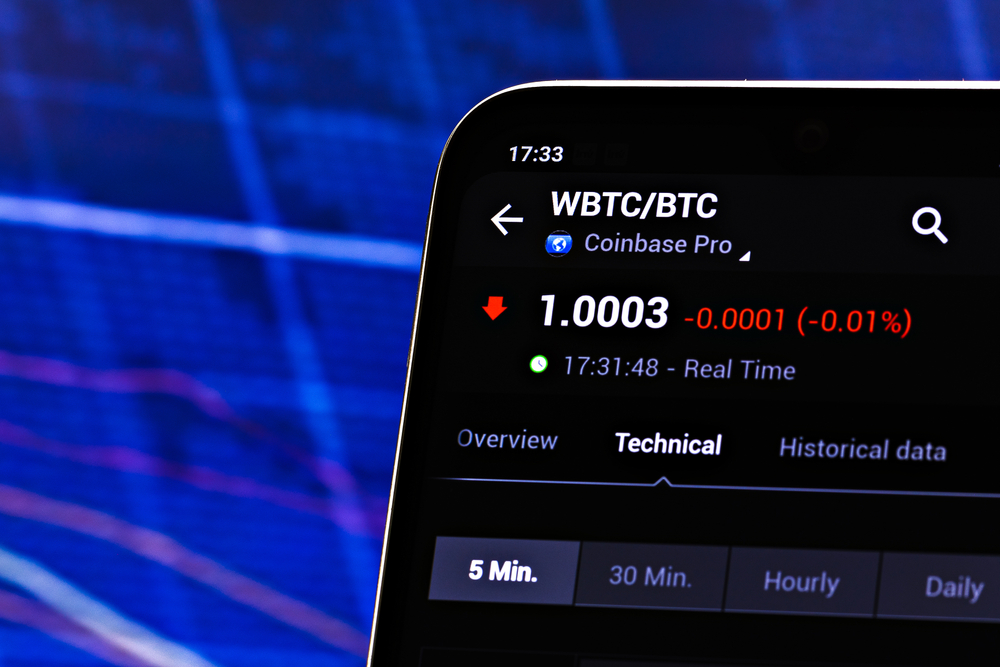A US federal judge has rejected BiT Global’s order to block Coinbase’s listing of Wrapped Bitcoin (WBTC).
Judge Araceli Martínez-Olguín on Wednesday rejected claims filed by Hong Kong-based BiT Global to block Coinbase’s delisting of WBTC. The judge ruled that the plaintiffs failed to prove immediate and irreparable harm that would result if the defendants delisted WBTC.
Coinbase wins over BiT Global
Judge Martínez-Olguín informed BiT Global’s lawyers that he had decided not to stop Coinbase’s delisting plan because there was missing evidence of what was going to happen.
The ruling stems from a lawsuit filed by BiT Global last week, alleging that the US-based cryptocurrency exchange is planning to delist WBTC. The plaintiff submitted that the latter sought to deploy unfair business practices by promoting an in-house version of wrapped Bitcoin.
BiT Global, the custodian of WBTC reserves along with BitGo, sought an injunction to prevent Coinbase from delisting its $14 billion product.
Coinbase’s response to the lawsuit showed that the move to delist WBTC stemmed from an unacceptable risk for Justin Sun, who controls WBTC. The co-founder of layer 1 blockchain Tron strongly denied Coinbase’s claims that he faced fraud and market manipulation in a lawsuit filed by the Securities and Exchange Commission (SEC) last year.
This contest became more evident when Coinbase unveiled its wrapped Bitcoin product, cbBTC. Sun disparaged the product, labeling it ‘central bank Bitcoin’, signaling dark days for Bitcoin.
In an October interview CoinDesk, BiT Global board member Robert Liu acknowledged that Sun has an advisory role at the same company. He later revealed that Sun was providing significant financial support for WBTC’s revamped custody platform.
At the hearing, Judge Martínez-Olguín asked BiT Global how the loss of profits was an irreparable harm, as claimed by the defense. Kneupper & Covey partner Cyclone Covey said WBTC supply has plummeted since Coinbase announced its delisting.
Coinbase’s attorney dismissed the argument that the cryptocurrency exchange’s trading volume only accounts for 1% of WBTC’s total trading volume. As a result, this does not amount to loss of revenue. Additionally, WBTC supply was declining prior to Coinbase’s delisting.
The lawyer submitted that the issue could force Coinbase to implement a plan to protect its platform. The lawyer dismissed the case as unrelated to monopoly and antitrust litigation.
What is Wrapped Bitcoin?
WBTC includes tokens backed by BTC reserves utilized across decentralized finance, regardless of issuer (BitGo, Coinbase, and BiT Global). This allows users to effectively utilize Bitcoin to lend, lend, and trade through the decentralized platform.
BitGo said in August that it was partnering with BiT Global, leveraging its Hong Kong-based entity to diversify WBTC and support it in a multi-jurisdictional manner. BitGo said it is building out its Singapore-based operations based on community feedback.
All three entities hold a single private key, but two are needed to create and burn WBTC.
Coinbase vs BiT Global Explained
Coinbase has revealed a circulating supply of cbBTC with a market cap of $2.1 billion, per CoinGecko data. After unveiling Ethereum and its network expansion solution Base, the trading platform revealed plans to add cbBTC to Solana.
Meanwhile, an interview with BiT Global on Tuesday Liu said Coinbase has decided to remove WBTC from its single email exchange. The Hong Kong entity has issued a general inquiry regarding WBTC’s revamped management structure, but has yet to receive a response.
Coinbase responded to the lawsuit with an exhibit that captured specific inquiries regarding BiT Global, Sun, and WBTC relationships.
An email dated October 24 cited collateral records of WBTC issued on Tron inquiring about the token. backing. The WBTC dashboard previously captured information indicating an ongoing reassessment of Tron’s WBTC viability.
Liu acknowledged that many DeFi projects will not be able to utilize WBTC on Sun’s Tron. He blamed the incompatibility of Tron and Ethereum, denying developers the ability to port their current projects to Tron’s network.
Liu acknowledged that Tron-based WBTC lacks real market demand unless cross-chain deployment issues are addressed. This explains the decision to leave WBTC.
Liu confirmed that BiT Global’s headcount has grown to 30, but that the ongoing investigation has not yet derailed the WBTC project. We recently expanded our institutional merchants to distribute Wrapped Bitcoin.
However, Liu questions the surge in regulatory investigations targeting Bit Global and WBTC. Management wonders why the Crusaders would target one person simply to destroy that person.
Editorial credit: photo_gonzo / Shutterstock.com

